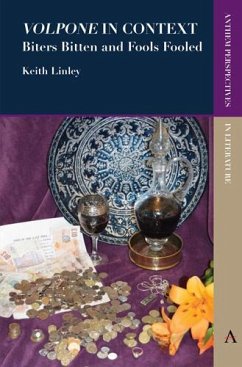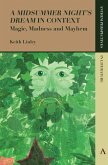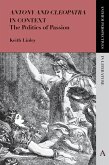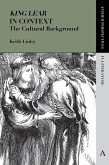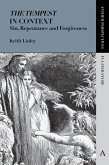Duplicity and deception were essential ingredients in a comedy, and though they were not morally acceptable they reflect what happened in real life; the putting of personal obsession and private will before social and Christian responsibilities. But here, the excess of evil is there from the start and simply increases. There is little light-heartedness. It is all one sustained bitter snarl about humanity's corruption. The tension between what people should do and what they actually do creates dramatic conflicts not just for the characters but also for the audience who may be torn between enjoying the dextrous scamming of Mosca and Volpone yet feeling they ought to be condemned and must be punished in the end. And the questions remain; should they be laughing at any of it and how can they not laugh at such a mad mixture of mistakes, such crass stupidity and such evil greed?
The fox is a creature of the night, a predator, a thief. He is a border raider, crossing from wild nature into man's domestic domain. Nightstalker, elusive, devious, he is embedded deep in the European psyche as a trickster and deceiver. This persona goes back to ancient Greek times when the various fox fables of Aesop mix with other beast tales. The linking of humans to animal characteristics is part of the language: snake in the grass, wolf in sheep's clothing, brave as a lion, timid as a mouse, busy as a bee, slimy toad, whoreson dog. At the most practical level, for a world almost entirely rural, he is the enemy of farmers and shepherds and individual poor households rearing just a few chickens; the feared killer who could annihilate a henhouse or ravage a warren. He was thus a food burglar, stealing vital nourishment before it could be put on the table and as such a threat to the family's economy and perhaps even a threat to its survival.
Tragedy is as old as human misery and comedy is its not-quite-identical twin, for laughter is as old as tears. One mask may smile, the other cry, but the faces are similar and in many respects so are the two genres, though their outcomes are different. Man's folly, his potential for evil, his potential for good, his ability to misunderstand the true values of life are common to both forms. One achieves correction of mistakes through disaster, pain, misery, the other through tears turning to laughter as folly is mocked and humiliated and order is restored.
The fox is a creature of the night, a predator, a thief. He is a border raider, crossing from wild nature into man's domestic domain. Nightstalker, elusive, devious, he is embedded deep in the European psyche as a trickster and deceiver. This persona goes back to ancient Greek times when the various fox fables of Aesop mix with other beast tales. The linking of humans to animal characteristics is part of the language: snake in the grass, wolf in sheep's clothing, brave as a lion, timid as a mouse, busy as a bee, slimy toad, whoreson dog. At the most practical level, for a world almost entirely rural, he is the enemy of farmers and shepherds and individual poor households rearing just a few chickens; the feared killer who could annihilate a henhouse or ravage a warren. He was thus a food burglar, stealing vital nourishment before it could be put on the table and as such a threat to the family's economy and perhaps even a threat to its survival.
Tragedy is as old as human misery and comedy is its not-quite-identical twin, for laughter is as old as tears. One mask may smile, the other cry, but the faces are similar and in many respects so are the two genres, though their outcomes are different. Man's folly, his potential for evil, his potential for good, his ability to misunderstand the true values of life are common to both forms. One achieves correction of mistakes through disaster, pain, misery, the other through tears turning to laughter as folly is mocked and humiliated and order is restored.
Dieser Download kann aus rechtlichen Gründen nur mit Rechnungsadresse in A, D ausgeliefert werden.

